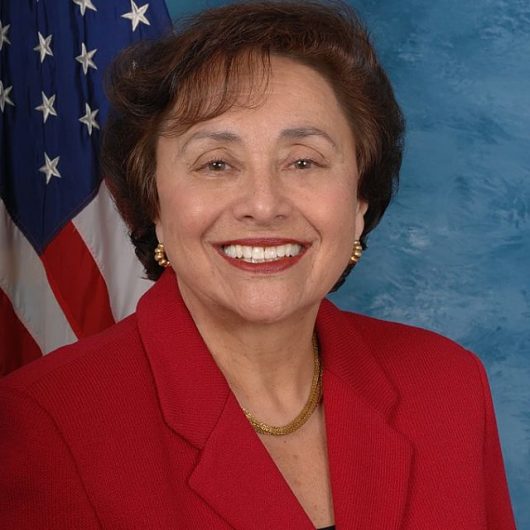Congressional Spotlight: Representative Nita Lowey

Representative Nita Lowey has been a key Congressional proponent for prioritizing educational opportunity in foreign aid and development programs. She is an outspoken advocate for women, children and families, championing issues related to education in the United States and abroad.
Currently serving her 15th term in Congress representing New York’s 17th district, Rep. Lowey was the first woman to serve as a Ranking Member of the House Appropriations Committee.
Rep. Nita Lowey, along with Congressmen Dave Reichert, introduced the Reinforcing Education Accountability in Development (READ) Act, to enhance transparency and accelerate the impact of U.S. basic education programs around the world. The READ Act passed into law on September 8, 2017.
The READ Act calls for:
- Engagement with key partner countries and nongovernmental institutions to promote sustainable, quality basic education.
- A comprehensive, integrated U.S. strategy that improves educational opportunities and addresses key barriers to school attendance, retention and completion for the poorest children worldwide.
- A senior coordinator within the U.S. Agency for International Development (USAID) to oversee the education aspects of foreign aid.
- An annual report to Congress on the implementation of the basic education strategy and progress achieved by USAID programs.
Worldwide, more than 263 million children and youth are out of school. In addition, 250 million primary school age children are lacking basic literacy and numeracy skills. Studies have shown that for every year a girl stays in school, her future income increases by 15 to 25 percent.
Rep. Nita Lowey strongly believes that prioritizing education around the world will “ultimately protect vulnerable children from poverty, disease, hunger and even extremism.”
On why the READ Act is such an important piece of legislation, Rep. Lowey’s Press Secretary Mike Burns told The Borgen Project:
“Without a doubt, education is the greatest force multiplier in foreign aid. The READ Act will enhance our global education efforts, removing barriers to education for those out of school and improving the quality of education for those already enrolled. Prioritizing education around the world will not only help students learn to read and write—it will ultimately help protect vulnerable communities from hunger and disease and increase economic advancement, particularly for girls and women.
“Simply put, by putting education at the center of our efforts, this bill moves us further down the path to building the world we want for ourselves and for future generations. This is a tremendous bipartisan achievement.”
Rep. Nita Lowey continues to be a leading Congressional proponent of educational opportunity, a leading international role for the United States, health care quality and biomedical research, stricter public safety laws, environmental protection, women’s issues, national security and improved homeland security preparedness.
– Sydney Lacey
Photo: Google
